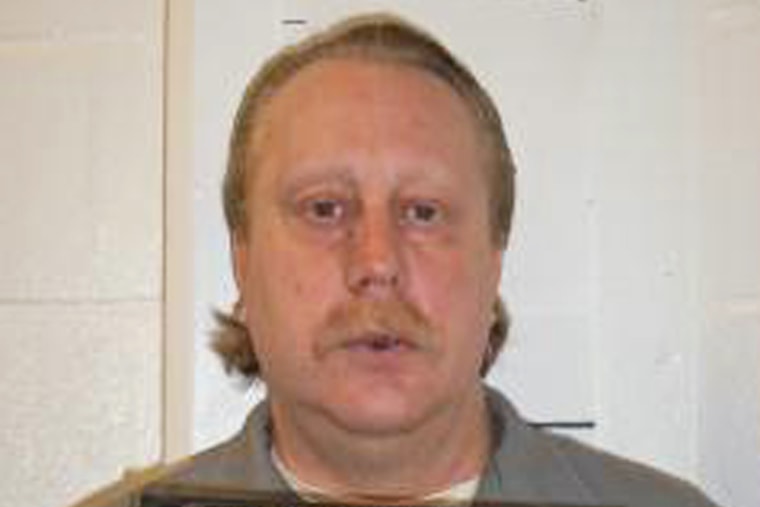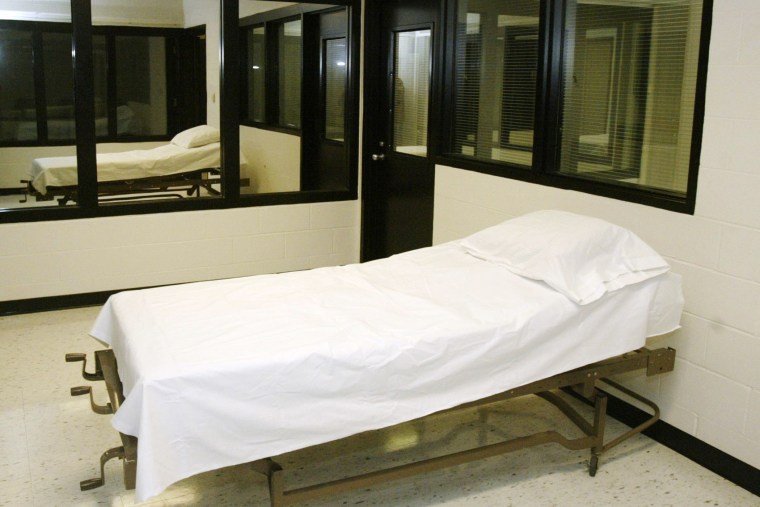A death row inmate with rare birth defects is fighting for Missouri prison officials to allow a videographer to record his execution in what his lawyers say will be a “prolonged, tortuous death.”
Attorneys for convicted killer Russell Bucklew filed a motion Friday in a Missouri District Court arguing that they want a visual record of the execution to use as evidence in a civil rights lawsuit against the state.

“If Missouri officials are confident enough to execute Russell Bucklew, they should be confident enough to videotape it,” Cheryl A. Pilate, one of Mr. Bucklew’s attorneys, said in a statement.
"It is time to raise the curtain on lethal injections."
The execution is scheduled for May 21, making Bucklew the first inmate to see the death penalty since a flubbed lethal injection in Oklahoma caused a convicted murder to writhe and moan in pain before he eventually died of a heart attack 43 minutes later.
Bucklew, 45, is convicted of the 1996 murder of Michael Sanders, in addition to kidnapping and raping his ex-girlfriend.
Bucklew suffers from a rare congenital disease that causes clumps of malformed blood vessels to grow in his face, head, neck and throat, his lawyers said. Because of his condition, they argue Bucklew is likely to hemorrhage and choke during his execution.
His attorneys contend that the execution would count as cruel and unusual punishment, violating the Eighth Amendment to the Constitution.
"It is clear that a tape of the execution is relevant to future litigation," the motion reads. "Among many other purposes, it may allow this court, or any other court, to better examine whether Missouri's lethal-injection procedures are 'sure or very likely to cause serious illness and needless suffering' in violation of the Eighth Amendment to the United States Constitution."
NBC News reports that the Missouri Attorney General's office disagrees, saying Bucklew has no constitutional right to "create" evidence.
"And the potential impact on the criminal justice system — including the real potential that private parties videotaping executions could lead us back to the days of executions as public spectacles — counsel against creating such a right," the state said in court papers.
"It is time to raise the curtain on lethal injections."'
Meanwhile, Bucklew's attorneys also contest that Missouri must disclose the source of the lethal drug used to execute the inmate. Like many states that are short on execution drug supplies, Missouri relies on compound pharmacies to provide the chemicals. These pharmacies are not regulated by the Food and Drug Administration, and states often refuse to disclose the names of their drug supplies for fear of threats from death penalty opponents.
Bucklew’s motion comes as news organizations are coming together in a landmark lawsuit challenging the secrecy surrounding Missouri’s execution procedures. Five organizations -- including The Guardian U.S., the Associated Press and three local newspapers -- are suing the state’s department of corrections after it changed its transparency policies, now refusing to disclose the source of the execution drugs.
“Without this information, the public cannot provide meaningful oversight of the executions that the state of Missouri conducts in its name,” the suit said.
